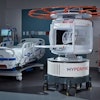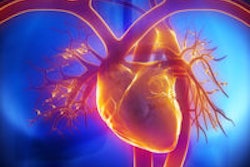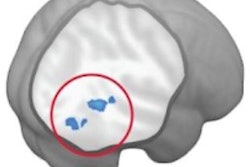Dear AuntMinnie Member,
U.K. researchers are using MRI to generate some fascinating insights into how gestational diabetes in pregnant women could affect the health of their newborn babies.
A group from Imperial College London used MRI to measure body fat in 86 babies, about half of whom were born to women with gestational diabetes. The babies were placed in comfy beanbags and scanned while sleeping -- they even wore special earmuffs to protect them from scanner noise (click here for a super-cute photo).
The researchers found that the babies born to diabetic women had higher levels of body fat. The question is, what does the research mean, and what does it contribute to our understanding of nutrition in pregnancy? Read more by visiting our MRI Community, at mri.auntminnie.com.
ABUS for breast screening
Is automated breast ultrasound (ABUS) ready to be used routinely for supplemental breast cancer screening of women with dense breast tissue? A U.S. group wanted to ask that question by comparing the technology with conventional freehand breast ultrasound.
The researchers scanned nearly 300 patients with both modalities and then compared the performance of each. They found there wasn't much of a difference between the two in the ability to detect noncystic lesions, and when there were differences, the lesions usually weren't clinically significant.
Get the rest of the story by clicking here, or visit our Ultrasound Community at ultrasound.auntminnie.com.
Virtual heart guides ICD implants
Finally, visit our Advanced Visualization Community for an article on how researchers from Johns Hopkins University created a 3D computer model they call a "virtual heart" using cardiac MRI data. They tested the model to see how well it can predict which patients should receive implantable cardioverter defibrillators (ICDs). Learn how it's done by clicking here, or visit the community at av.auntminnie.com.



.fFmgij6Hin.png?auto=compress%2Cformat&fit=crop&h=100&q=70&w=100)




.fFmgij6Hin.png?auto=compress%2Cformat&fit=crop&h=167&q=70&w=250)











